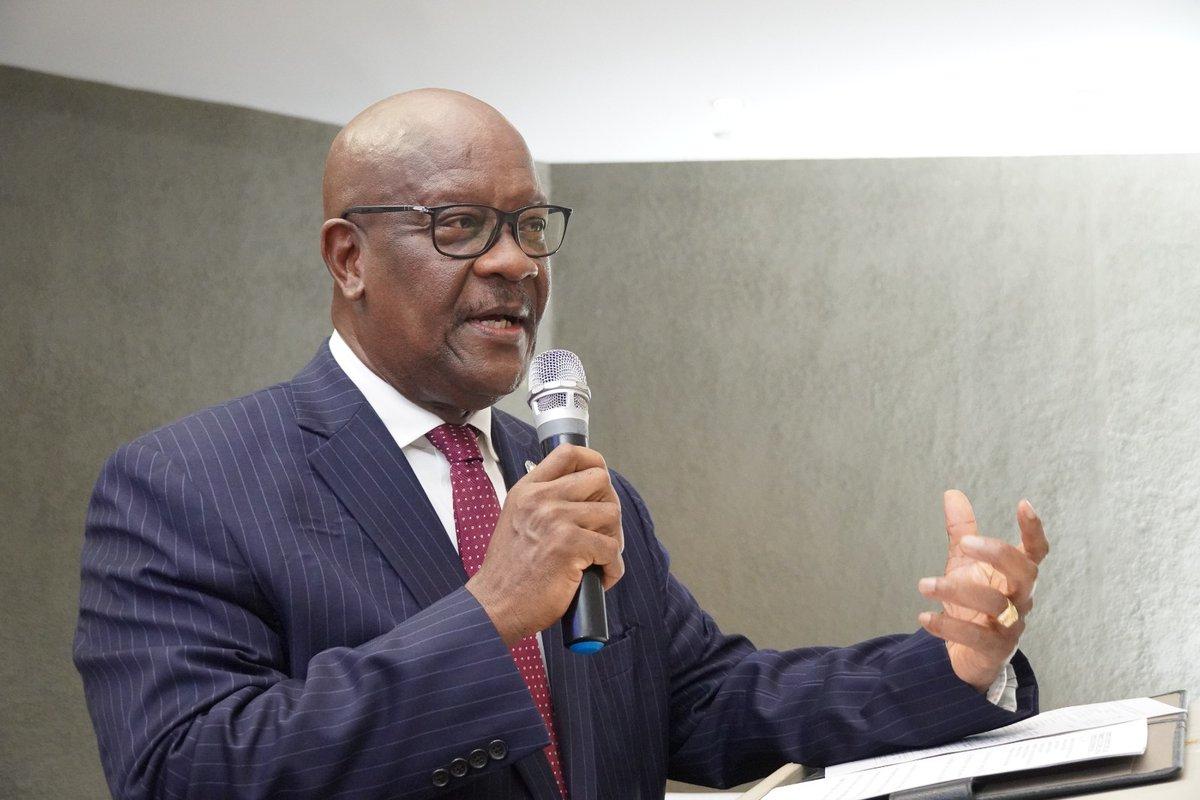 Sierra Leone’s Minister of Health, Dr. Austin Demby, delivers an inspiring statement at the just concluded UN General Assembly, UNGA79.
Sierra Leone’s Minister of Health, Dr. Austin Demby, delivers an inspiring statement at the just concluded UN General Assembly, UNGA79.
The highly anticipated 79th United Nations General Assembly (UNGA) just ended in New York, United States. This annual summit sheds light on the urgency and critical need for enhanced international cooperation to deal with pressing challenges including poverty and inequality, climate change, ongoing conflicts and global health crises among others.
The gathering also presented a breathtaking opportunity for countries like Sierra Leone to showcase the significant efforts made at addressing the knock-on effects of climate change on health, poverty alleviation, as well as the gains achieved in improving healthcare.
Representing Sierra Leone as Minister of Health, Dr. Austin Demby graced this year’s summit with powerful presentations on multiple sideline events inspiring global leaders by his innovative approach to delivering healthcare; providing insights on key accomplishments gained in maternal health and other life-saving interventions.
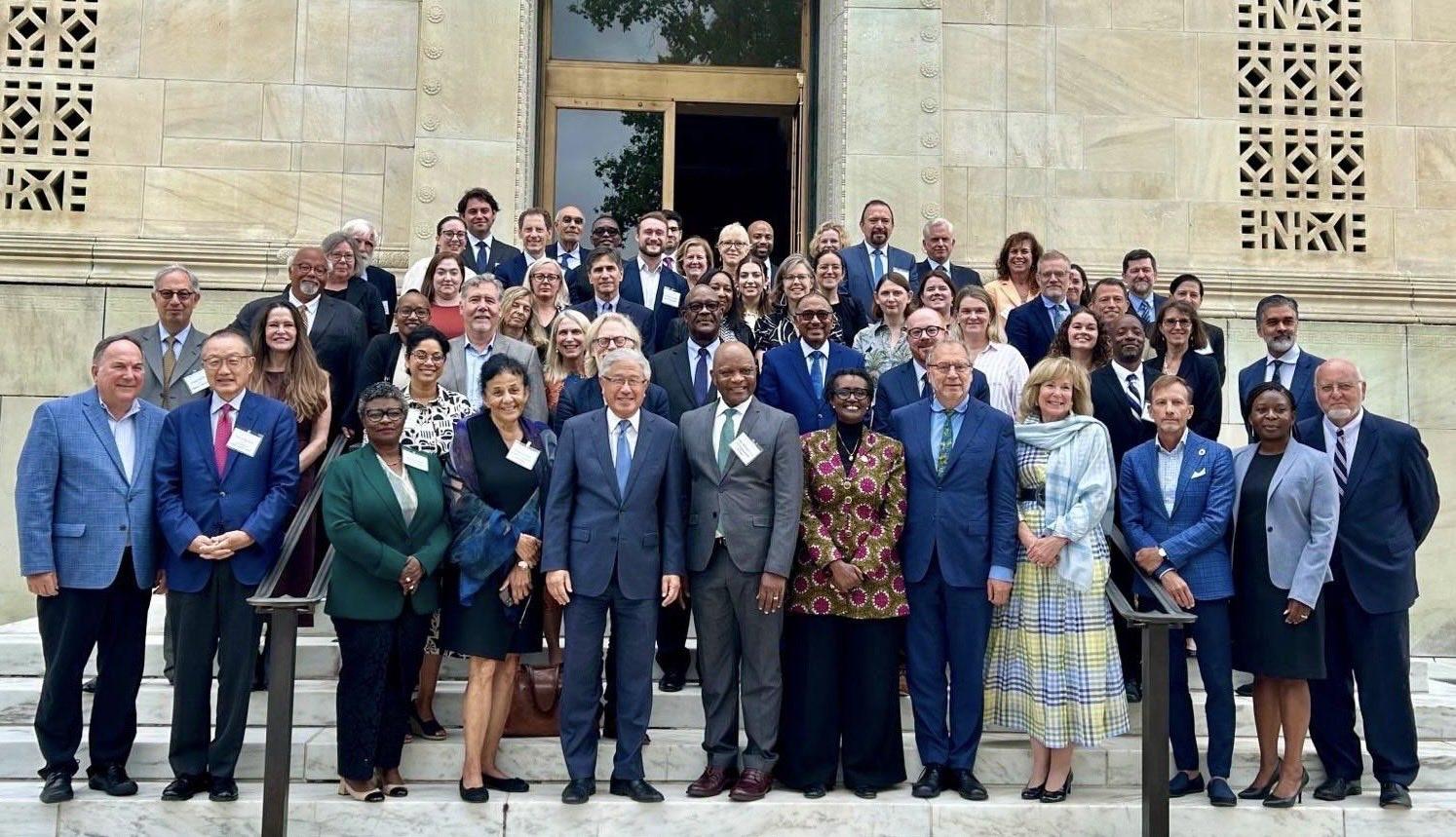
Global leaders from different countries, including Sierra Leone’s Minister of Health, in the middle, pose for a group photo after holding a successful side event at the just concluded UN General Assembly.
Sierra Leone’s transformative healthcare journey is premised on the life stages approach, which prioritises healthcare to all individuals starting from pregnancy through to when the baby becomes a senior citizen. Under this innovative approach, Dr. Demby and his team are well underway to achieving Universal Health Coverage (UHC) by setting bold targets with key deliverables. Minister Demby believes that healthcare should be delivered through an unwavering commitment of leaving no one behind, especially the most vulnerable. At the heart of this commitment lies an urgency to ensure that healthcare is accessible to all irrespective of social or financial status.
Several other critical health topics of global concern, including the threats of antimicrobial resistance were top of the agenda at this year’s gathering. In a high-level meeting convened by the President of UNGA, Mr. Philemon Yang, antimicrobial resistance (AMR) was highlighted as a global threat that requires a united response.
“It is a multifaceted problem, demanding coordinated efforts on many fronts,” President Yang added.
For Sierra Leone, Dr. Demby was unequivocal about the country’s determination to effectively collaborate with global health partners and the United Nations to fully implement the political declaration from the high-level meeting on AMR. He said, “this will remain central to our efforts in safeguarding our people’s health and ensure the responsible use of antibiotics.”
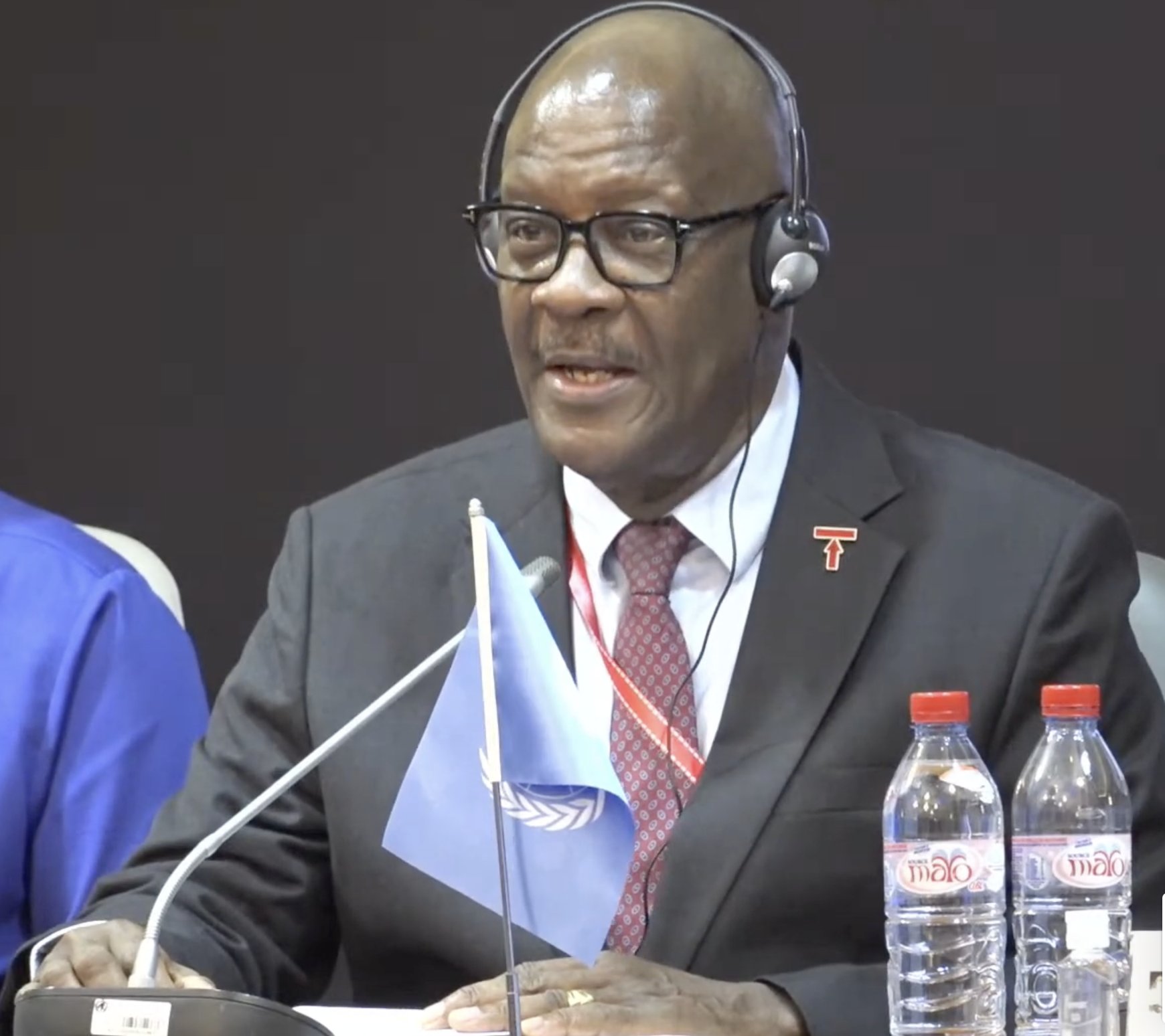 A high-level meeting convened by the President of UNGA, Mr. Philemon Yang, on antimicrobial resistance (AMR) was attended by Dr. Austin Demby as Minister of Health for Sierra Leone.
A high-level meeting convened by the President of UNGA, Mr. Philemon Yang, on antimicrobial resistance (AMR) was attended by Dr. Austin Demby as Minister of Health for Sierra Leone.
Dr. Demby urgently called on the international community to support the implementation of National Action Plans in developing countries to help address the threat of antimicrobial resistance.
“African nations require resources to upgrade laboratories, train healthcare professionals, and strengthen systems. Far too often, antibiotics are used to offset inadequate sanitation and healthcare,” he said. By improving sanitation and healthcare systems, coupled with strong antibiotic stewardship, Africa stands to significantly reduce the demand for antibiotics and its potential effects.
As world leaders deliberated on these issues and more, one call that resonated across all spectrums of the General Assembly was climate change. “Our planet is under siege with the intensifying effects becoming increasingly evident,” said Philemon Yang, president of UNGA79.
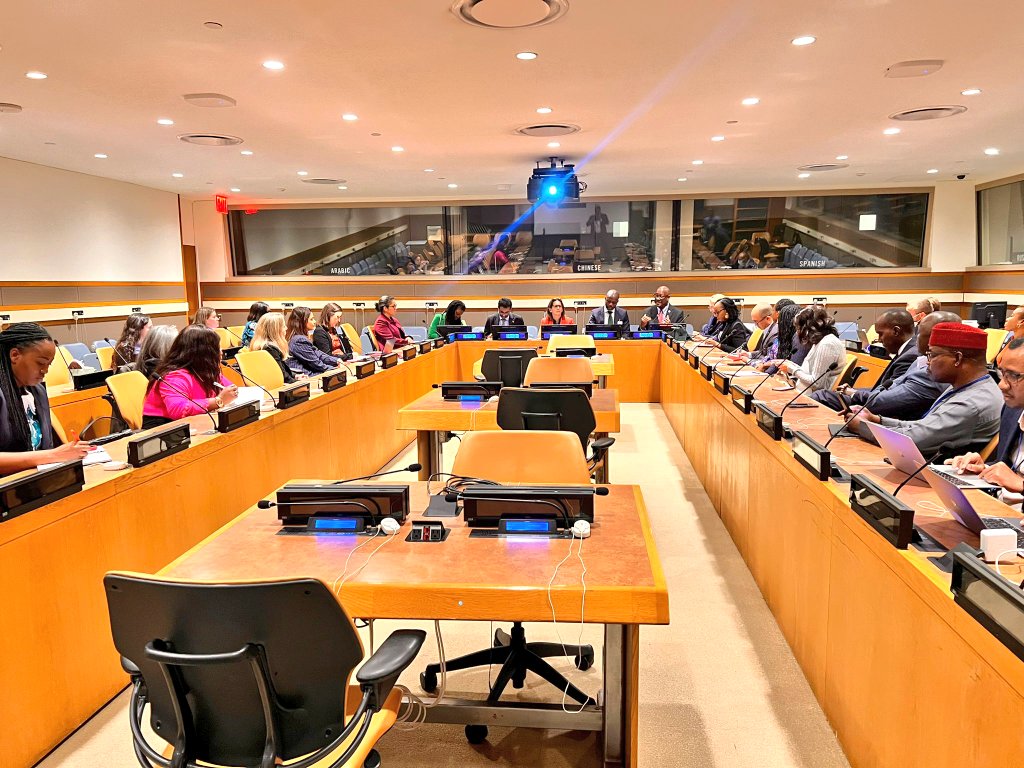 For the first time ever two government ministries from Sierra Leone, the Ministry of Health and the Ministry of the Environment and Climate Change, hosted a climate change event at the just concluded UN General Assembly, UNGA.
For the first time ever two government ministries from Sierra Leone, the Ministry of Health and the Ministry of the Environment and Climate Change, hosted a climate change event at the just concluded UN General Assembly, UNGA.
The impacts of climate change are already being felt across the globe through extreme weather events, rising sea levels, pollution and biodiversity loss and all these are becoming more prevalent and more destructive on a daily basis.
According to global estimates, the effects of climate change will cause an estimated 250,000 deaths per year from diseases like malaria, diarrhoea and heat stress.
In addition, climate change will also cost the health sector, agriculture and water and sanitation in excess of USD$2-4 billion per year by 2030.
These critical intersections between climate and health are well documented in Sierra Leone and the country is now poised on ensuring that the spillover effects of climate change are mitigated through resilient health systems.
The Minister of Health and his team highlighted efforts made locally to respond to climate impact on health through a side event that was co-hosted by the Ministry of the Environment and Climate Change.
In fact, it was the first time ever that government ministries from Sierra Leone hosted an event at UNGA with the discussions highlighting the need to build resilient health systems with lessons from local and international perspectives.
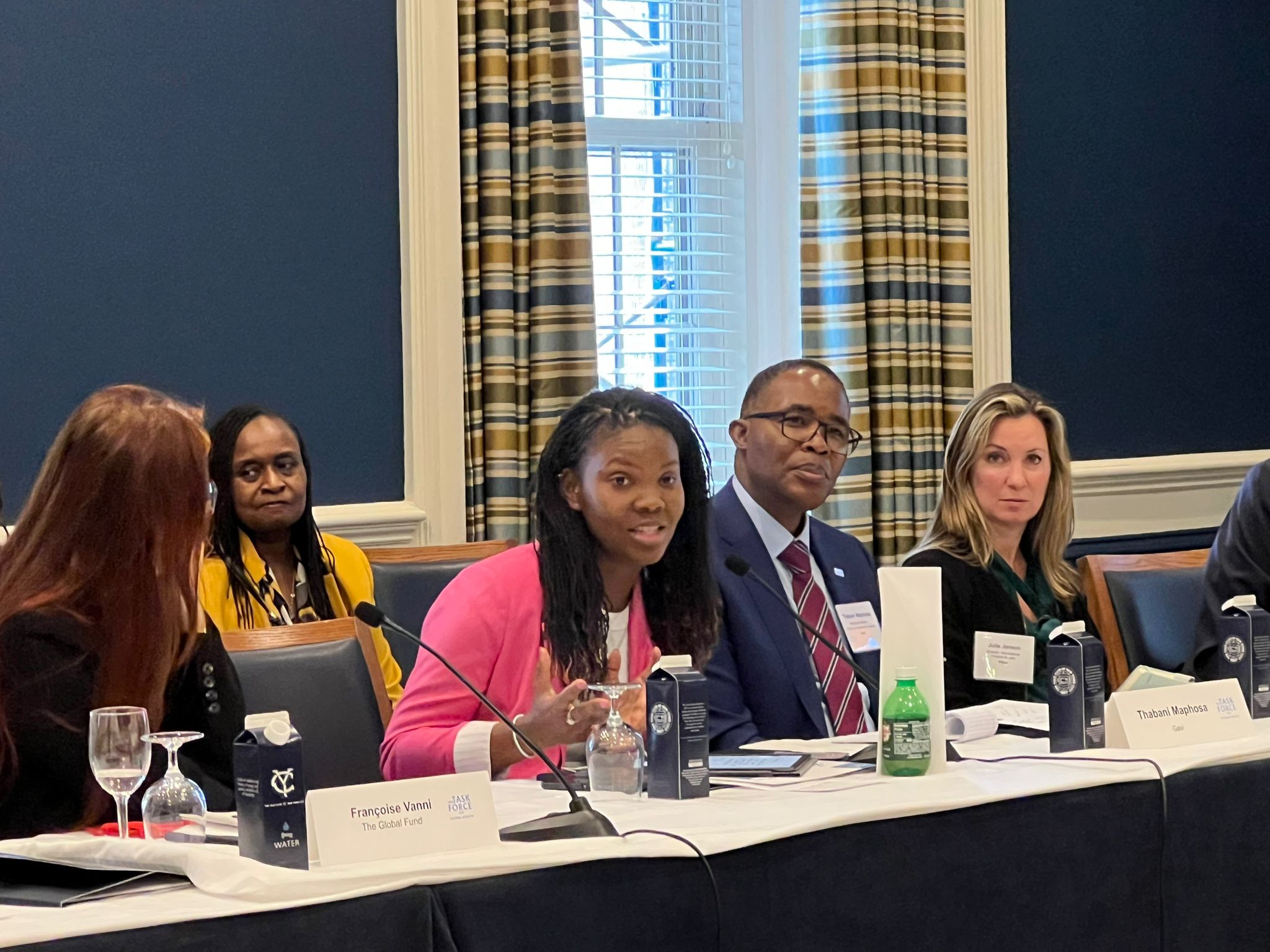
Sierra Leone’s Deputy Minister of Health 2, Dr. Jalikatu Mustapha, central, participated in several side events, including the one she hosted on climate change and health, at the recently concluded UNGA 79.
This successful panel was brilliantly moderated by the Deputy Minister of Health 2, Dr. Jalikatu Mustapha, who noted that African countries face the brunt of climate health challenges affecting the more vulnerable people. The Africa region, she says, is experiencing the effects of climate change at an alarming rate as it continues to experience rising cases of malaria, food insecurity and heat related illnesses.
Even though Africa contributes only 10% of global greenhouse gas emissions, it bears a significant brunt of the climate crisis and is the least able to cope. Added to this is the often under-resourced and ill-equipped health systems on the continent that are unable to deal with climate related disasters.
Dr. Mustapha, however, stressed that countries like Sierra Leone and Mozambique are demonstrating great leadership and innovation on the continent by coming up with local solutions to respond to the climate challenge in the health sector. “We’re doing this through community-based adaptations and cross sector collaborations,” she said. 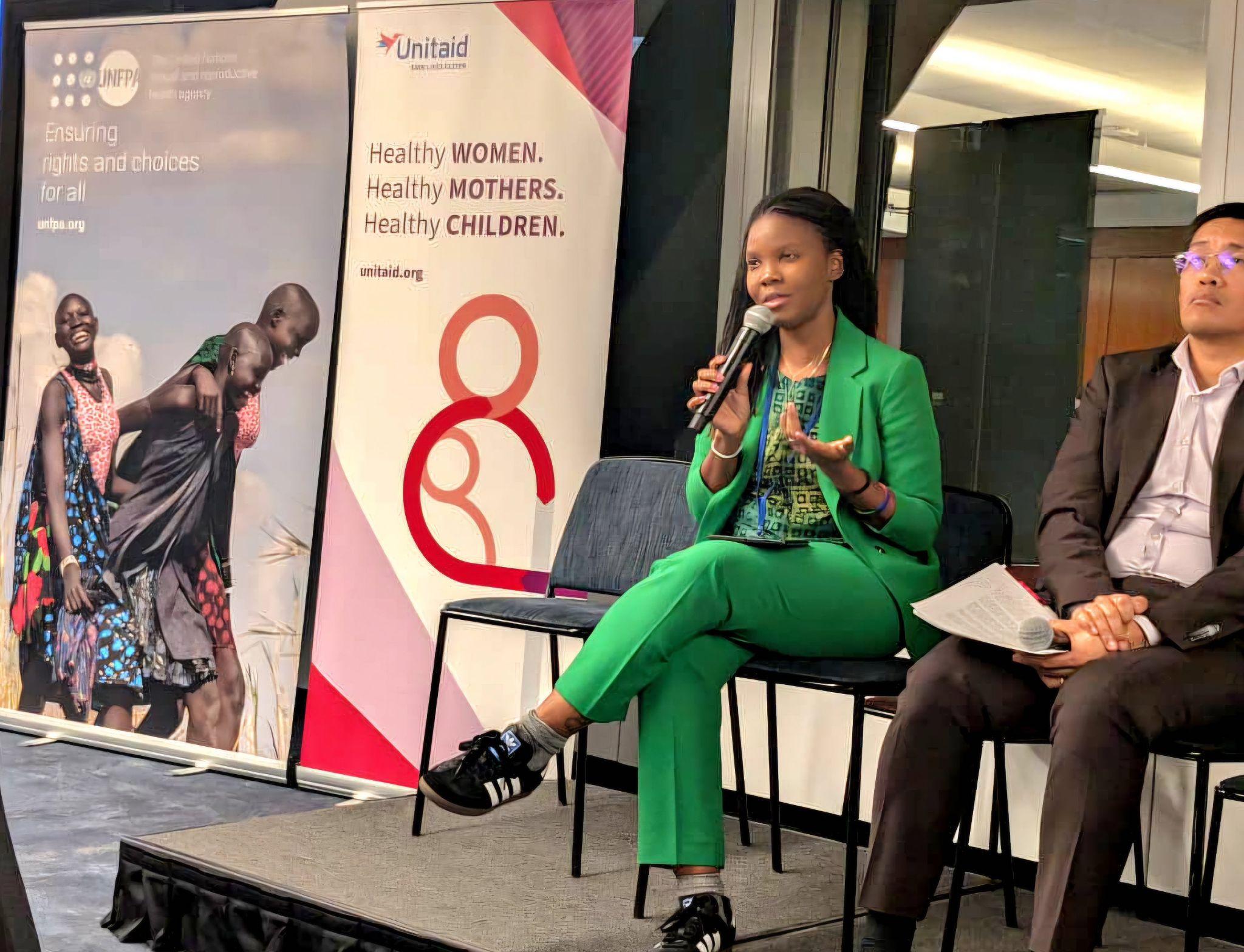 Sierra Leone’s Deputy Minister of Health 2, Dr. Jalikatu Mustapha, right, a panellist in one of the side events at UNGA 79
Sierra Leone’s Deputy Minister of Health 2, Dr. Jalikatu Mustapha, right, a panellist in one of the side events at UNGA 79
She went on, “as we incorporate climate resilience in our public health systems, we are also learning valuable lessons not just for our country, but for the region and also the global community.”
For the UNGA President, embracing climate actions means safeguarding the earth’s natural resources, preserving biodiversity, and ensuring equitable access to clean air and water for all.
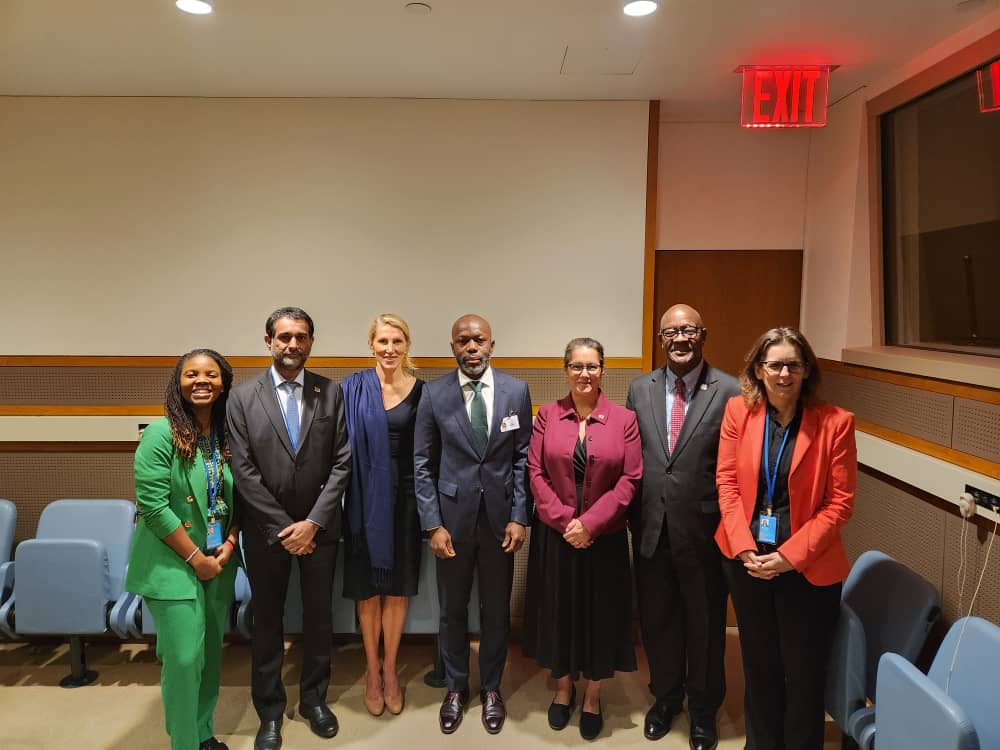 After successfully hosting the climate change event at UNGA for the first time ever, Sierra Leone’s Ministers of Health, and Climate Change and the Environment, pose for a group photo.
After successfully hosting the climate change event at UNGA for the first time ever, Sierra Leone’s Ministers of Health, and Climate Change and the Environment, pose for a group photo.
This year’s UNGA summit was attended by 136 heads of state and governments as well as 40 ministers representing different countries. The event did offer a platform for global leaders to also discuss and come up with answers to the myriads of healthcare challenges confronting nations including HIV/AIDS, malaria and how youth-led innovation and research can help address the disease burden and many more.

